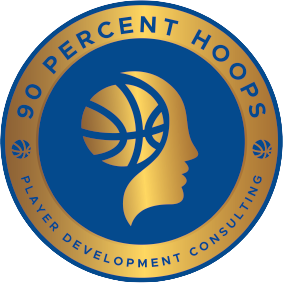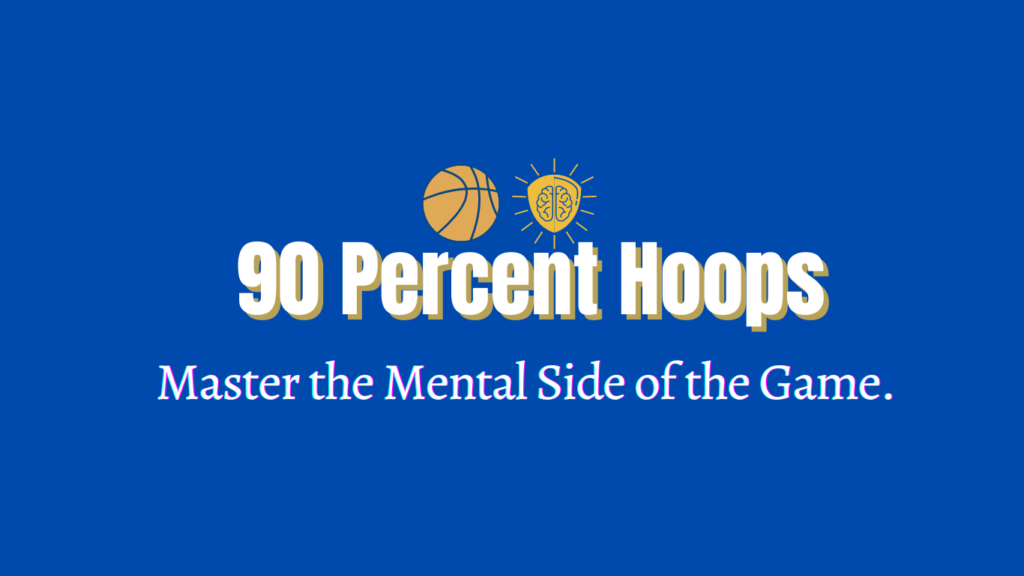We live in a results driven world. If you do not produce the desired results, then you will not reach your desired level of effectiveness. Results are what keeps a business running, and an athlete on the playing field. If a salesman does not close deals and meet his/her sales quotas, they will not have a job. If an athlete does not perform well in competition, the organization will not want them back the next year. Results are obviously very important as they are the primary indicator for how well an individual/organization is performing. But should we be evaluating individuals/organizations strictly based on results? At the end of the day results are really all that matters. You get paid and promoted based off your results. The overall health of a business is determined by their results from the entire year. However, is focusing solely on results, the best way to achieve the best possible results overall?
In your personal life, the most optimal way to achieve your desired results is by setting goals for yourself. If you set a goal for yourself some time ago but have yet to achieve it, should you negatively judge yourself for that? Should you view that as a failure? I believe that we should evaluate and place more emphasis on progress rather than a final destination, or end result.
Imagine you are fresh out of college, with no money and a pile of student loan debt. You don’t know exactly what you want to do but you decide that you want to build something for yourself. You want to be a leader and not an employee. So, you set your sights on starting a business, a business that incorporates your passions and skills. A year passes by and you have started your company but it’s not where you want it to be and it’s not producing much money for you. Should you negatively judge yourself for it? I mean, you set a goal for yourself and you did not hit it, so technically that could be considered failure on your part. Should you just give up since you haven’t reached your goal? Of course not. Starting a business is a very challenging thing to do, particularly if you don’t have much experience or start-up capital. You are not going to realistically take a non-existent business and turn it into a million dollar company in your first year after school. Almost nobody can do this. Instead of telling yourself you are a failure since you didn’t hit your goal, focus on the progress that you made. Tell yourself how amazing it is that here you are, a year after graduation with your very own business. Look at the progress you have made, both personally and in your business. Being your own boss and having your own business will teach you a lot about yourself. Those lessons you learned and insight you gained should serve as motivation to continue to chip away and move forward.
If you are focused on progress, then you are growth oriented. If you are focused on goals, then you are obviously, goal oriented. If you are growth oriented, you always want to keep improving and adding to your life. If you are goal oriented, you become satisfied and complacent after you hit a goal, or discouraged and frustrated if you miss a goal. Growth orientation assumes you can always be better. Goal orientation assumes you can hit a certain point and that’s it. A growth oriented mindset puts you in the right direction to realize your full potential.
The drawbacks of goal setting:
Not hitting your goals can be very frustrating and can seriously weigh heavy on your motivation. You may start to feel like you will never reach your goal. This is why I believe we should alter the way we look at goals. It’s very common to hear that you should set very specific goals. Setting very specific goals though, doesn’t work for everyone. Specific goals are required only if you want a specific outcome. If you just want to grow and become an overall better individual, specific goals are not going to help you.
There are many people who will feel like a failure if they do not hit the goal they set for themselves. This can have a negative influence on their mindset, in the way that they become discouraged to set future goals for themselves. They don’t look for opportunities to grow and better themselves. I am in no way against setting goals. The problem is that many people do not set the right goals and don’t know what goals to even set. They either set unrealistic goals and have no way of actually achieving them, or they set goals that are way too easy to accomplish. It’s tough to find the middle ground in goal setting. It seems like the bar is set way too high or way too low. When an in individual fails to hit a set goal, they often become scared of pursuing other opportunities that promote growth and improvement. The fear of dealing with the same negative feelings that failure brings starts to set in. It makes their end desires seem idealistic and out of reach if they haven’t had success when they tried in the past.
Changing your perspective on goals:
If you have a history of not realizing your goals, you will not have a ton of confidence to set and achieve goals in the future. Yes, there are a million reasons why people don’t achieve the goals they set for themselves, but maybe the most prominent reason is the goal itself. You cannot set a lofty goal for yourself and expect to realize that goal without changing your behavior. Your attitudes and actions have to grow in order for the realization of your goals. You should establish targets that you want to hit in life, but your focus should not be on the targets themselves. The focus needs to be on progress. Instead of saying, a year from now I want A, B, and C, the goal should be, a year from now I want to be able to say that I have made substantial progress on A, B, and C. With progress, there is more motivation, there is no motivation in failing to hit a goal, only discouragement. Discouragement is poison to motivation, it eats away and your ability to be a self-starter. We as humans get very easily scared off by a bad experience. We let one bad experience affect how we view that experience forever. It’s like when we go to a restaurant and the food we order makes us sick. We will probably refrain from going to that restaurant again in the future. It’s possible it was just a one off mishap but even though you know you probably won’t get sick again, you will still probably avoid going there. It doesn’t really make logical sense, but humans are not logical. We are emotional beings, and most of the time we let emotions make our decisions for us.
It may certainly not be logical to let a negative experience from our past prevent us from taking action in the future, but that emotional scarring keeps us from doing so. So how can we remove this emotional scarring? You do it by focusing on progress. You have progressed so much since who you were a few years ago, even a few months ago. Even if you are not deliberate about growth and development, we as humans still progress as time moves forward. As you move forward and get older in life, your standards for yourself should move forward as well. Our standards rise steadily as we age when we are younger, but when we become adult age we tend halt the evolution of our standards. As we grow older and continue to develop, the ways in which we evaluate ourselves need to grow as well. With age, comes more responsibility and more expectation. You are not expected to solve high school math problems when you are in 5th grade, but you are expected to solve them when you are in high school. You should be looking to take on more and raise the standards for yourself as you grow older. Perhaps you just weren’t in the right place mentally or emotionally to try and hit that goal. But now, since you are older, wiser, and more mature, you could be able to. But you can’t without growth. In order to prevent yourself from not taking action on things you failed in the past, you have to look at all the ways in which you have grown. You are not the same person you were when you failed initially, you are smarter, more resilient, and more capable now. You should be accepting more challenges as you grow and if you are letting past failure stand in the way of future growth, you will have a difficult time being someone you can be proud of. The progress you have made since you initially failed, should give you the confidence to continue and strive for more. All of the ways in which you have grown will help you become the person you want to be.
If you have had trouble hitting your goals, or don’t know where to start with setting your goals, you need to change your mindset. You need to adopt a growth mindset and focus on your personal development. You may not have something specific you want, but in order to accomplish anything noteworthy, you have to decide to be a more skilled, and knowledgeable individual. When you focus on your personal growth, you build up your character. Being a high character individual makes you extremely valuable both in your professional and personal life.
Goal vs. Growth mindset
The primary difference between a goal mindset and a growth mindset, is that goals are ideal while growth/progress is real. Progress is evidence, it provides you with easily identifiable personal facts that highlight your growth. Anyone can set a goal for themselves, but very few people know how to actually achieve that goal. Being goal focused nullifies the need for constant improvement. Many people can find success once or twice, but far fewer can find sustained success. If you focus on progress, you build up yourself as an individual and that increases your confidence, capabilities, and motivation. I think that focusing on progress relives a lot of pressure on yourself. You may have the accountability and discipline to work towards a goal, but if you aren’t where you want to be in relation to achieving that goal you may start doing things that actually take you further away from that goal. Say you have a goal to produce 10 promotional videos a month. Imagine that the end of the month is only a few days away and you have only produced 8 videos. How do you think the quality of those last two videos are going to be? They are going to be rushed and the quality of the videos will be negatively impacted. That’s because you started to feel the pressure of your goal. If you focus on progress, you should be working to make the best videos possible. In this case, progress is simply making your next video better than the previous. You don’t need to give yourself a deadline because you are striving to grow and get better, not hit some arbitrary goal you set for yourself. Too many people don’t know the why behind their goals and that creates a lot of confusion and unnecessary pressure on yourself. You will be much more motivated if you can see your progress and take smaller, more manageable steps. Your attention to detail will be much sharper and you will be able to take on one thing at a time on your own pace. This will keep you encouraged and excited to take on more challenges. Focusing on progress helps you avoid trying to do too much too quickly. Progress also gives you a far more accurate projection of the future. If you have consistently made progress, you have much clearer picture of what you need to do next in order to keep making progress. If you are only focused on an end result, it’s easy to be confused about the most appropriate action to take at each moment in time. Focusing on progress allows you to set a foundation. To learn any skill or become proficient in any career, it requires a foundational knowledge that must be set in order to understand the more complex. By focusing on progress it allows you to gain that foundation, which helps establish some forward momentum. That momentum leads to motivation. It’s always easier to strive for more if you have motivation from the start. That motivation helps you create a purpose, and you will be more committed to fulfilling that purpose if you have already spent a lot of time and energy.
Another advantage of being growth oriented is you can more easily adapt to changing circumstances. Circumstances change all the time, things that are completely out of your control can have an impact on your ability to achieve that goal. Circumstances can force you to change your goal completely. With progress, you won’t have to change anything. Ever changing circumstances are simply part of the growth process. If you are focused on one particular goal, you may try to resist change and that could be a huge waste of time. Let’s say your goal is to establish a new marketing campaign. You may utilize billboards and magazine ads, but that is not where the attention is. A few years ago, that strategy would have been great but now it is completely out of date. If you are growth oriented, you would take the time to learn where the consumer’s attention is, and you would adjust accordingly. Being growth oriented never boxes you in, it always leaves room for adjustment and adaptation.
Going back to what I mentioned earlier in this article about goal setting, many people set their goals way too big. We hear about shooting for the stars and dreaming as big as possible. I don’t think there is anything wrong with having big goals. But you will have a much easier time if you give yourself a starting point and something to work with. The problem with setting big goals, is that once you start you become overwhelmed with all the work you have to do to get there. I am sure everyone at some point has had a day where they had a million things to accomplish. You probably felt very overwhelmed and decided to just do nothing instead. Leaving all the things you have to get done for another time. The feeling of being overwhelmed always leads to inaction. When you have a lot to do you don’t know where to start. By taking a systematic approach and focusing on progress, things become a lot more manageable. You are far more likely to take action when you have manageable tasks in front of you. John Maxwell had a great quote to go along with this, from his book “15 invaluable laws of growth” he says, “Small disciplines repeated with consistency every day lead to great achievements gained slowly over time.” The issue is that people want things too fast, they lack the discipline for progress. It’s not about getting what you want fast, it is about taking advantage of what you have to work with and slowly building on top of that as time moves along. When you focus on progress, you are forced to think about what you can do right now. You aren’t worried about the long term because you can’t do anything about it right now. You can only focus on the most important thing you need to accomplish today. You will deal with the future when you get there. The progress mindset keeps you focused on what is most important right now.
Why progress is important for leaders:
This principle of progress also applies to any leaders running an organization. Most employees are evaluated based on their ability to hit their goals. Goals that the employees don’t even set themselves. Leaders should be primarily responsible for establishing goals, but they should involve the employees. The problem when leaders set the goals without any employee input, is that the goal may not fit the person. Goals should be customized based on who is expected to fulfill them. Leaders don’t care about personality types, strengths and weakness when designing the goals they want hit. If everyone is different and brings different strengths to the table, then every employee should be evaluated differently. Some people are better and more capable than others and have differing strengths/weaknesses, yet everyone is judged on the same criteria. When employees are evaluated strictly on results, they start to feel the pressure. Work pressure is the most stressful pressure there is since your income and stability is at risk. You start thinking about what you will do if you get fired, how you will feed your family and pay the bills. In order to avoid getting fired, employees may have to do things they would ordinarily be uncomfortable with or engage in unethical behavior. I was recently watching a documentary about Wells Fargo, and their sales goals they have for their employees. There were numerous employees who talked extensively about the unrealistic goals, and how they were having to bend the rules and do things they weren’t comfortable doing in order to reach them. Their goal was to cross-sell a certain number of customer accounts. In other words, they had to get existing bank members to open up additional accounts with the bank. If the employees did not open up a certain number of additional accounts, they would be terminated. Fearing their jobs and the security that comes with them, the employees had to repeatedly ask friends and family members to open up additional accounts. They would also open up fake/fraudulent accounts to boost their numbers. Things that the employees would never have done if it wasn’t for these unrealistic goals. This ultimately led to a lawsuit and the company was heavily penalized for it. Unrealistic goals perpetuates unethical behavior by employees. The goal should be to groom and mold employees to be the best they can possibly be. That can be done by placing the emphasis on progress, rather than a final destination. Employees will feel much more cared for, motivated, and will always act in their own best interest, which in turn benefits the company. Employees should not feel like they have a gun to their head when they walk into work, thinking about what they will do if they get fired for not hitting their goals. A culture of progress will cause an employee to feel safer in their environment and they will be more motivated to do what is right for themselves and the company. Progress in an employee shows that they care and are committed to growing and becoming the best they can be.
It is definitely true that you can get what you want in life by setting goals for yourself. It is just simply not practical for everyone. Goals are very idealistic and we simply love the thought of them and that’s it. The time and energy that must be spent to work towards achieving that goal can be very overwhelming. By focusing on growth, you simply look to make progress. Each day you try to do a little bit more than you did the previous day. Progress keeps you motivated and wanting to do more. It prevents you from becoming complacent or not knowing what to do next. If you want to be a lifelong learner, you must adopt the growth mindset.
The Rolling J / Jonathan McClure
https://therollingj.net/the-ultimate-guide-to-learn-how-to-trust-yourself/
References:
Maxwell, J. (2012). 15 invaluable laws of growth . Center Street .
(Alex Gibney, 2020)Alex Gibney, L. N.-K. (Director). (2020). Dirty Money – “The Wagon Wheel” [Motion Picture].














One thought on “WHY YOU SHOULD FOCUS ON GROWTH INSTEAD OF GOALS”